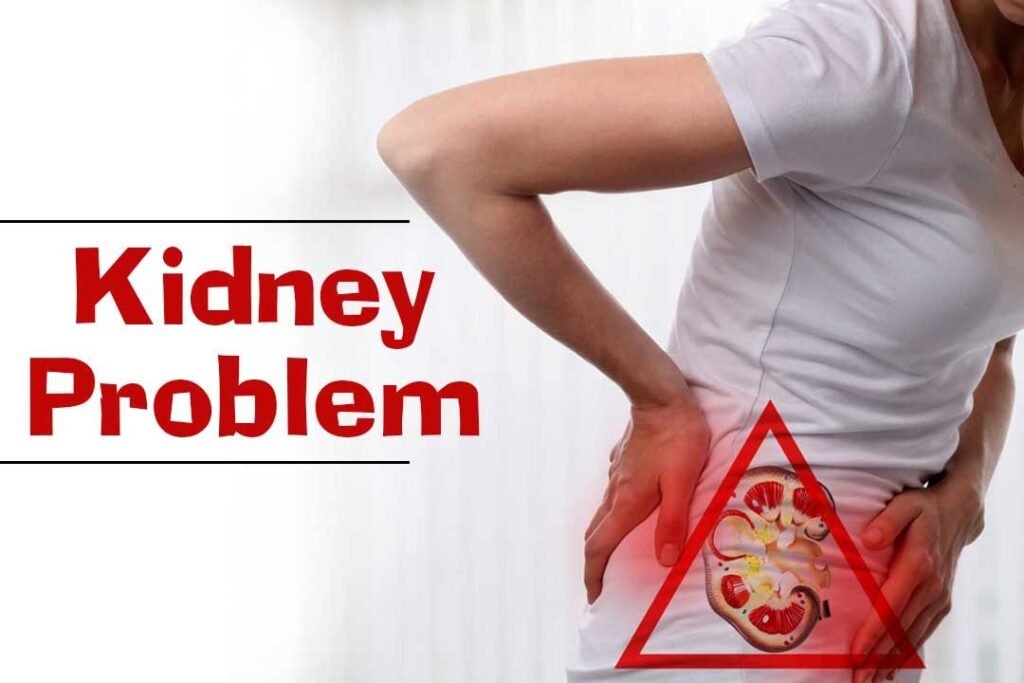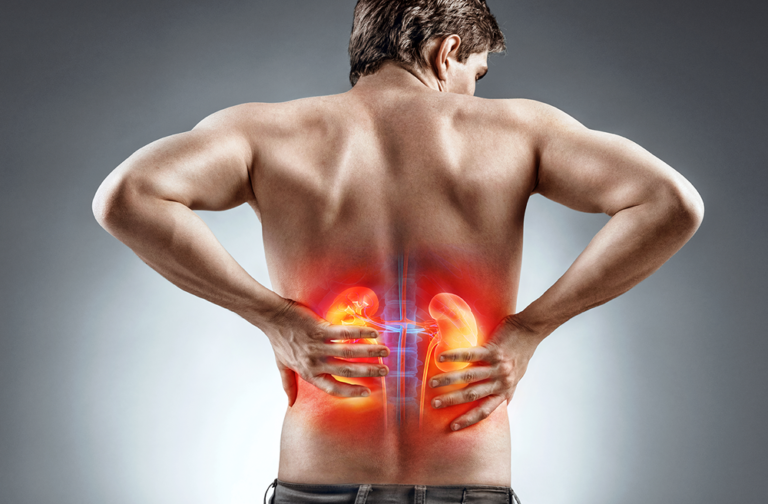1/ Diagnosis
As a first step toward diagnosis of kidney disease, your doctor discusses your personal and family history with you. Among other things, your doctor might ask questions about whether you’ve been diagnosed with high blood pressure, if you’ve taken a medication that might affect kidney function, if you’ve noticed changes in your urinary habits, and whether you have any family members who have kidney disease.
Next, your doctor performs a physical exam, also checking for signs of problems with your heart or blood vessels, and conducts a neurological exam.
For kidney disease diagnosis, you may also need certain tests and procedures, such as:
- Blood tests. Kidney function tests look for the level of waste products, such as creatinine and urea, in your blood.
- Urine tests. Analyzing a sample of your urine may reveal abnormalities that point to chronic kidney failure and help identify the cause of chronic kidney disease.
- Imaging tests. Your doctor may use ultrasound to assess your kidneys’ structure and size. Other imaging tests may be used in some cases.
- Removing a sample of kidney tissue for testing. Your doctor may recommend a kidney biopsy to remove a sample of kidney tissue. Kidney biopsy is often done with local anesthesia using a long, thin needle that’s inserted through your skin and into your kidney. The biopsy sample is sent to a lab for testing to help determine what’s causing your kidney problem.
⇒⇒Try The Kidney Disease Solution
2/ Treatment
Depending on the underlying cause, some types of kidney disease can be treated. Often, though, chronic kidney disease has no cure.
Treatment usually consists of measures to help control signs and symptoms, reduce complications, and slow progression of the disease. If your kidneys become severely damaged, you may need treatment for end-stage kidney disease.
3/ Treating the cause
Your doctor will work to slow or control the cause of your kidney disease. Treatment options vary, depending on the cause. But kidney damage can continue to worsen even when an underlying condition, such as high blood pressure, has been controlled.
4/ Treating complications
Kidney disease complications can be controlled to make you more comfortable. Treatments may include:
- High blood pressure medications. People with kidney disease may experience worsening high blood pressure. Your doctor may recommend medications to lower your blood pressure — commonly angiotensin-converting enzyme (ACE) inhibitors or angiotensin II receptor blockers — and to preserve kidney function. High blood pressure medications can initially decrease kidney function and change electrolyte levels, so you may need frequent blood tests to monitor your condition. Your doctor will likely also recommend a water pill (diuretic) and a low-salt diet.
- Medications to lower cholesterol levels. Your doctor may recommend medications called statins to lower your cholesterol. People with chronic kidney disease often experience high levels of bad cholesterol, which can increase the risk of heart disease.
- Medications to treat anemia. In certain situations, your doctor may recommend supplements of the hormone erythropoietin (uh-rith-roe-POI-uh-tin), sometimes with added iron. Erythropoietin supplements aid in production of more red blood cells, which may relieve fatigue and weakness associated with anemia.
- Medications to relieve swelling. People with chronic kidney disease may retain fluids. This can lead to swelling in the legs, as well as high blood pressure. Medications called diuretics can help maintain the balance of fluids in your body.
- Medications to protect your bones. Your doctor may prescribe calcium and vitamin D supplements to prevent weak bones and lower your risk of fracture. You may also take medication known as a phosphate binder to lower the amount of phosphate in your blood, and protect your blood vessels from damage by calcium deposits (calcification).
- A lower protein diet to minimize waste products in your blood. As your body processes protein from foods, it creates waste products that your kidneys must filter from your blood. To reduce the amount of work your kidneys must do, your doctor may recommend eating less protein. Your doctor may also ask you to meet with a dietitian who can suggest ways to lower your protein intake while still eating a healthy diet.
Your doctor may recommend follow-up testing at regular intervals to see whether your kidney disease remains stable or progresses.
⇒⇒Try The Kidney Disease Solution
5/ Treatment for end-stage kidney disease
If your kidneys can’t keep up with waste and fluid clearance on their own and you develop complete or near-complete kidney failure, you have end-stage kidney disease. At that point, you need dialysis or a kidney transplant.
- Dialysis. Dialysis artificially removes waste products and extra fluid from your blood when your kidneys can no longer do this. In hemodialysis, a machine filters waste and excess fluids from your blood. In peritoneal dialysis, a thin tube (catheter) inserted into your abdomen fills your abdominal cavity with a dialysis solution that absorbs waste and excess fluids. After a period of time, the dialysis solution drains from your body, carrying the waste with it.
- Kidney transplant. A kidney transplant involves surgically placing a healthy kidney from a donor into your body. Transplanted kidneys can come from deceased or living donors. You’ll need to take medications for the rest of your life to keep your body from rejecting the new organ. You don’t need to be on dialysis to have a kidney transplant.
For some who choose not to have dialysis or a kidney transplant, a third option is to treat kidney failure with conservative measures. However, once you have complete kidney failure, your life expectancy generally would be only a few months.
6/ Potential future treatments
Regenerative medicine holds the potential to fully heal damaged tissues and organs, offering solutions and hope for people who have conditions that today are beyond repair.
Regenerative medicine approaches include:
- Boosting the body’s natural ability to heal itself
- Using healthy cells, tissues or organs from a living or deceased donor to replace damaged ones
- Delivering specific types of cells or cell products to diseased tissues or organs to restore tissue and organ function
For people with chronic kidney disease, regenerative medicine approaches may be developed in the future to help slow progression of the disease.
 The best tips heathy Just another WordPress site
The best tips heathy Just another WordPress site




